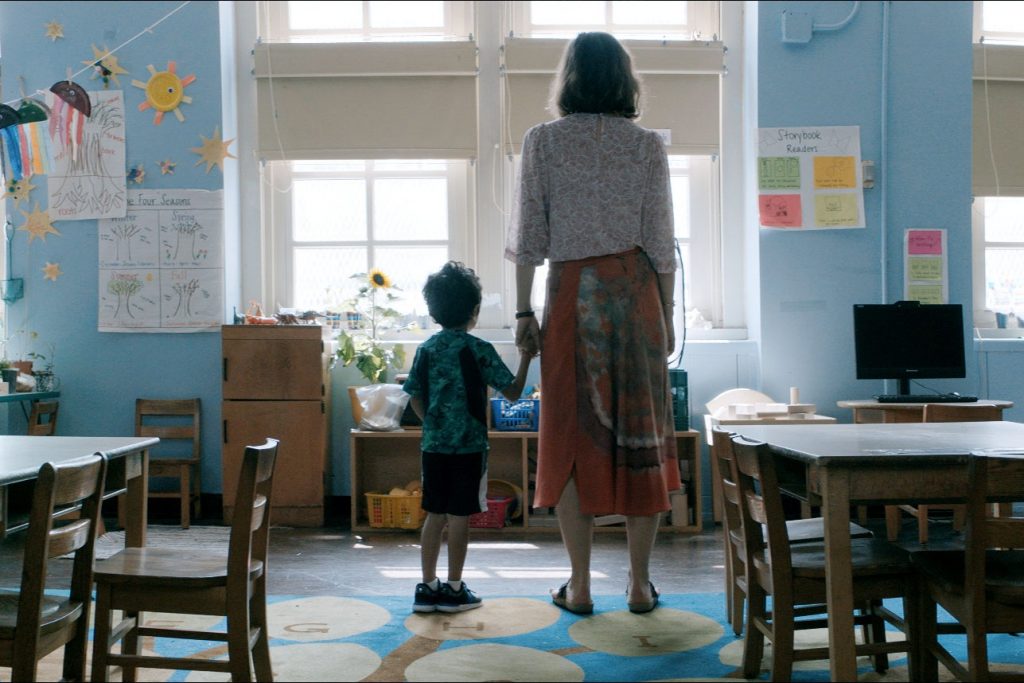The Pandemic Has Caused A 20% Increase In Speech Delays Among Toddlers
The Center for Disease Control and Prevention (CDC) and many doctors around the world say that putting a mask on your child will help ease the spread of COVID and the many variants that have followed. However, there is another alarm being sounded as it pertains to children wearing face masks – the sudden increase of speech delay seen in toddlers.

The Center for Disease Control and Prevention (CDC) and many doctors around the world say that putting a mask on your child will help ease the spread of COVID and the many variants that have followed. However, there is another alarm being sounded as it pertains to children wearing face masks – the sudden increase of speech delay seen in toddlers.
“This has been a very challenging year,” said Jaclyn Theeck. She is the clinical director and speech-language pathologist at the Speech and Learning Institute, Inc. in North Palm Beach, Florida, and says that her speech therapy clinic has seen a huge shift in the ages of their patients. Pre-pandemic, Theeck says, only 5% of patients were babies and toddlers. Today, as the pandemic continues to consume the world, she says that numbers have risen drastically to 20%. Parents are calling this speech delay issue “Covid-delayed.”
“We’ve seen a 364% patient increase in patient referrals of babies and toddlers from pediatricians and parents,” Theek said. She prefers to call the problem “speech-delayed.” One father, Greg Santos, explains that he brings his son Diego to Theeck two times a week to work on his speech delay. “He would just ramble, baby ramble,” Santos said via WPBF. “Certain words that are key did not flow, so that began to raise a red flag.”
Diego was born at the beginning of the pandemic and Santos said he was perfectly healthy. But as the pandemic started, Santos says he’d take his son out for walks around the neighborhood, and it would be empty. The lockdowns started and no one would venture out. This led Santos to believe that his son’s speech delay was built around social isolation, and everyone being forced to wear face masks.
According to Theeck, her clinic has seen a 364% increase from pediatricians and parents in referrals of babies and toddlers. Babies begin to learn speech and speech patterns as early as 8-months-old. They do this by reading lips. Some kids are able to work around this, says Theeck, but others have a lot of difficulties, which leads to speech delay.
Theeck was quick to point out that no official study has been completed on this speech delay theory. “There’s no research out there yet saying that this could be causing speech and language delays. But, most definitely, I’m sure it’s a factor,” Theek said. “It’s very important that kids do see your face to learn, so they’re watching your mouth.”
While researchers are going to need more time trying to determine if there is a link between wearing face masks and speech delay, Santos believes the early work with his son has been beneficial. He has already seen a vast improvement. “He’s going to be totally fine. I think so,” Santos said.
Speech therapists have given parents a few milestones a child should hit by certain ages. If they don’t seem to be hitting those, there may be cause for some speech delay concerns. These milestones are by 12-months-old, toddlers should already have five to ten words in their vocabulary. By 18-months old, that vocabulary should be reaching anywhere from 25 to 50 words. And by 2-years-old, children should be able to hit at least 100 words.
One of the biggest pieces of advice Theeck and her peers can give to parents is to allow children time. In the age of face masking, make sure when you are home with your child, take the face mask off and talk to them. Read to them, play with them, and even sing to them, even if your voice sounds like nails on a chalkboard. The key here in combating speech delay is to let your child see your face and read your lips.



